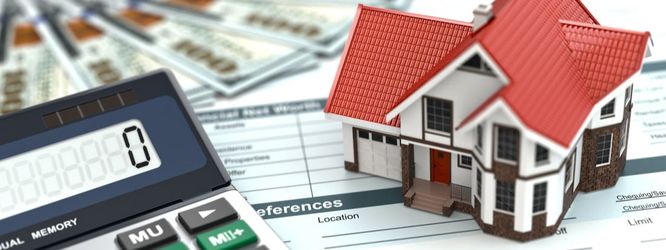If you are 62 or older, reverse mortgages are a way to borrow against the equity in your home (the value of your home minus any mortgage debt you may have) to provide what may be tax-free income (often referred to as cash flow). A reverse mortgage requires no scheduled loan payments until the loan ends.
Potential Advantages of a Reverse Mortgage:
• A reverse mortgage may help you continue your financial independence and maintain or improve your quality of life.
• A reverse mortgage allows you to remain in and keep the title to your home.
• The money you receive is generally not considered taxable income. You should consult with an independent tax professional to determine individual tax consequences of a reverse mortgage.
• You make no payments until the end of the term of the loan (defined to be when the last eligible borrower permanently leaves or sells the home, when you die, when a fixed due date occurs, or at the end of the loan term as it otherwise may be determined).
• You can eliminate mortgage payments by paying off existing loans through proceeds from the reverse mortgage.
• You can select from several different benefit payment plans/options to meet your needs.
• Your income or credit score is not a consideration in obtaining a reverse mortgage, since no payments are required until the loan ends.
• Independent counseling is required in advance.
Potential Drawbacks of a Reverse Mortgage
• They are more complicated than conventional mortgages, and the consequences of various plans/options are not always obvious.
• They are relatively expensive compared to other loans, including home equity loans, especially at the time the loan is originated.
• Although the money you receive is typically income tax-free, it may affect your eligibility under existing law for “needs-based” public assistance benefits such as Supplemental Security Income (SSI) and Medicaid/MediCal.
• They may reduce or eliminate the equity in your home, affecting the estate to be distributed to your heirs.
• When the product is other than an FHA-insured mortgage, you should confirm the reverse mortgage is entirely a non-recourse loan. This means the liability to repay the loan is limited to your home (its then market value or sales price) and would not subject any of your other assets or income, or the income and assets of your heirs, as sources for repayment.
• They are often not well understood by real estate, mortgage, tax, or legal professionals. Check out their experience with these mortgages before accepting their advice.
Important Questions to Ask Before Choosing a Reverse Mortgage
• How much money do I need?
• Is there a way to meet my needs that does not involve a reverse mortgage?
• Will a reverse mortgage make my partner or me ineligible for any “needs-based” public assistance benefits—now or in the future?
• Does my home qualify for a reverse mortgage?
• How much can I borrow through available reverse mortgage products?
• How much will it cost me in origination fees, closing costs, interest, monthly, or periodic fees?
• Will I have to sell my home before I die to pay off the reverse mortgage?
• If I die and my partner is still living in my home, will he or she have to leave or pay off the reverse mortgage?
• Will the reverse mortgage become due and payable if I require long-term care and move to an assisted-living facility, or to a nursing or convalescent home?
• Will there be anything left for my partner, my heirs, or me when the reverse mortgage is fully paid?
• Are there any fees, costs, or other charges due when the reverse mortgage is fully paid? (Regardless of product, prepayment penalties cannot be demanded when the reverse mortgage is partially or fully prepaid.)
• What are my continuing financial obligations with a reverse mortgage, such as property maintenance, property taxes, insurance premiums, and homeowners’ association assessments or fees (as applicable)?


Hi, this is a comment.
To get started with moderating, editing, and deleting comments, please visit the Comments screen in the dashboard.
Commenter avatars come from Gravatar.